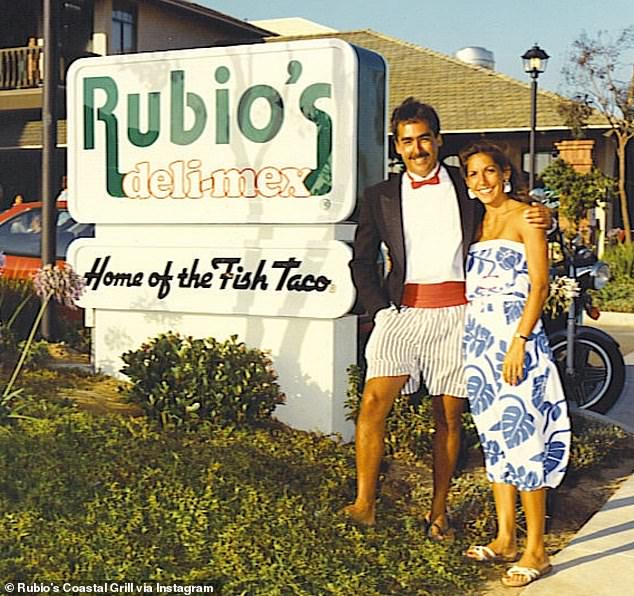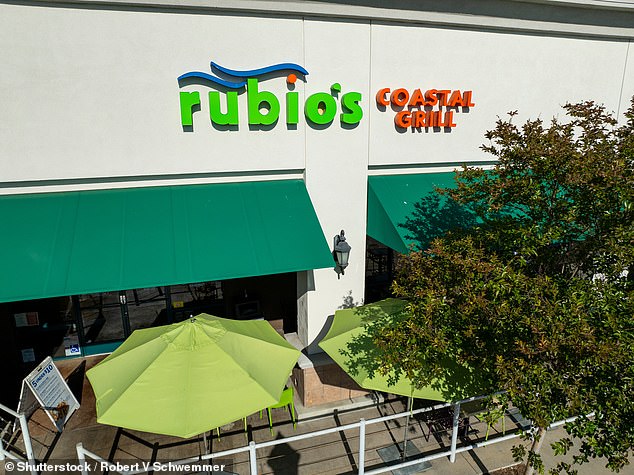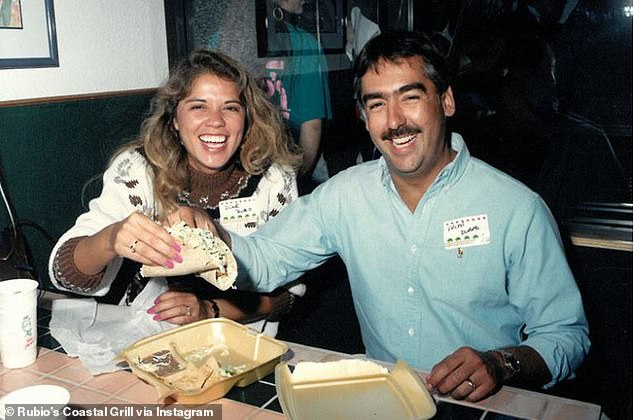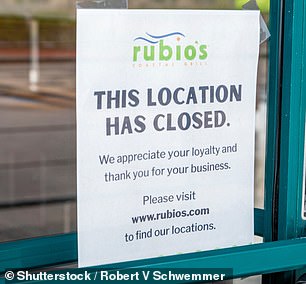The minimum wage of $20 an hour in fast food in California claims its first victim.
Mexican chain Rubio’s Coastal Grill is closing 48 restaurants in the state – due to the “increasing cost of doing business in California.”
“While painful, the store closures are a necessary step in our long-term strategic plan to position Rubio’s for success for years to come,” added a Rubio’s spokesperson.
The San Diego-based chain is known for its fish tacos. In fact, it was founder Ralph Rubio who introduced them to Americans.
He discovered them while on spring break in Baja California, Mexico, in the late 1970s and opened a stand selling them in San Diego, where he had been a student, in 1983. This earned him the title of king of San Diego Tacos.

The grand opening of the third Rubio’s store in the Pacific Beach neighborhood of San Diego, California in 1986.
At its peak, Rubio’s had about 200 restaurants — mostly in California but also in four other states — before the pandemic hit.
The pandemic hit the chain hard and — along with competition from giant chains like Chipotle — forced the closure of all of its restaurants in Florida and Colorado.
It filed for bankruptcy protection in fall 2020 and restructured.
This week’s 48 closures represent just over a third of the 134 remaining in California, Nevada and Arizona.
Of those, 24 are in the Los Angeles area, 13 around San Diego, 13 and 11 in Northern California, including Sacramento and the Bay Area.
Experts highlight the effect of the $20-an-hour minimum wage for fast-food restaurants in California, which took effect April 1. For other sectors, it is $16 per hour – but could rise to $18 from the fall (see box). below).
“The first thought that came to their minds was that they were really going to be hit hard by this increase in the minimum wage for fast food workers from $16 an hour to $20 an hour,” Alan Gin, an economics professor at the University of San Diego, told NBC.
“But Rubio’s also faces other problems. They have had financial difficulties for a long time.
Orange County Register reported that Rubio workers took to social media after discovering the closures while reporting for work on the weekend.
On Reddit, one wrote: “Former employee after today.
“They legitimately told us this morning when we showed up for work that today was going to be our last day. No severance, no warning, nada. I don’t know exactly what locations are going to take place, but there are a ton.
Another expert said Rubio’s falls into the category of chains large enough to fall under the California rule — having 60 or more restaurants nationwide — but not having thousands of outlets to generate economies of scale and reduce fixed costs.
UCLA economist Brian Wheaton told CBS that a “cost increase,” like the $4 hourly minimum wage increase, could be the thing that pushes these fast food chains over the edge in a situation where they go bankrupt.
He added: “I think that’s the kind of thing we’re seeing in the case of Rubio’s.”
Rubio’s wouldn’t say which restaurants were closed, but a Reddit user provided a list of some of the closures around Los Angeles:
Adelanto, Anaheim Hills, Brea, Cerritos, Eastvale, Fountain Valley, Fullerton, Huntington Beach (Beach Boulevard), La Habra, Lake Forest, Lakewood, Long Beach, Marina Del Rey, Ontario, Orange (N. Tustin St.), Oxnard , Pasadena, Placentia, Rancho Santa Margarita, Santa Ana (at Highway 55 along 17th Street), Santa Clarita, Seal Beach, Tustin, Ventura and Whittier.
Twelve more were closed in San Diego County.
Once DailyMail.com has a complete list, we will update the article.
The Rubio’s spokesperson added: “Making the decision to close a store is never easy.
“Rubio’s, after a thorough review of its operations and the current business climate, has decided to close 48 underperforming locations in California as of May 31, while keeping 86 stores open in California, Arizona and Nevada.
“The closures were prompted by the rising costs of doing business in California.”

Runio’s abruptly closed 48 restaurants in California, including the one in Santa Clarita

Ralph and his wife, Dione Rubio in 1989, at the grand opening of Rubio’s Encinitas store

A sign at the Santa Clarita restaurant
In recent months, bankruptcies have multiplied, adding to the closures of restaurants and stores.
On Monday we reported how BurgerFi – which presents itself as an upscale McDonald’s – has sparked concerns about mass closures after revealing it was considering bankruptcy.
Bosses are considering Chapter 11 bankruptcy, which would allow it to exit the leases of its worst-performing restaurants and sell the contents – as Red Lobster did last month.
In fact, Red Lobster closed nearly 100 after filing for bankruptcy in May.
National high-end coffee and grocery chain Foxtrot announced in early April that it would close all its stores with immediate effect, leaving staff and customers stunned.
Foxtrot, founded in 2014 in Chicago, had 33 locations in the Chicago, Austin, Dallas and Washington DC areas.
Meanwhile, retailer Express – a mall staple – filed for bankruptcy in April and announced it would close 95 outlets.